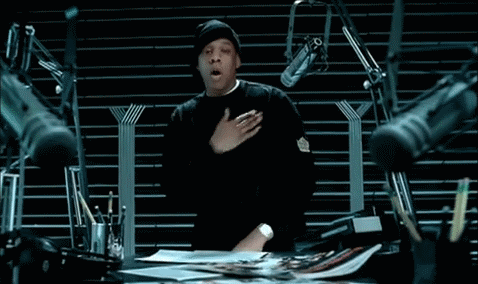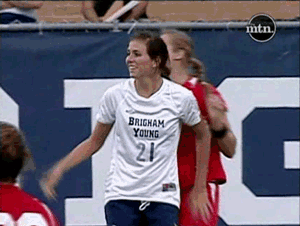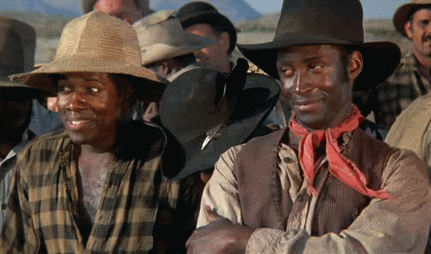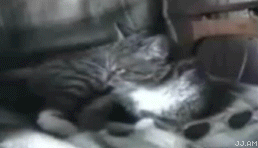
Who benefits from DRM? (Not the consumer.)
June 22nd, 2012 Posted by david brothersI’ve been thinking about DRM again lately, especially Diablo III‘s ridiculous always-on DRM and ComiXology shutting down a script to download comics you’ve purchased. It’s fair to say that I’m pretty much anti-DRM, but I still want to talk this out.
The Diablo III thing is painfully obvious to me. If you buy a single player game, you should be able to play it whenever you want. This has been true all the way back to Nintendo days. It’s basic. You shouldn’t need to be online or communicating with someone else just to get your game on. But, when Diablo launched, the servers went down, and folks who dropped sixty on their shiny new game couldn’t do a thing. As it turns out, the always-on DRM was to protect their auction house. It doesn’t matter if you’re not using it or if you’re just playing alone. You have to be connected, no matter what, and if the servers are down, you’re screwed.
The ComiXology thing is different, but still related. If you buy digital comics, you’re probably paying full retail for those comics every week from ComiXology. You can read those comics in their (pretty crappy) Flash-based web reader, on the (average, but sometimes janky) iPad reader, on iPhone, or on your Android device. You don’t get a file, exactly, so much as access to the files. If you want to read your comics in ComicZeal, which has a remarkably clean and smooth reading experience despite a less-than-feature-rich library section, you’re out of luck. If you want to read your comics on a PC without being online, you’re out of luck. If ComiXology goes out of business, which isn’t a crazy idea at all, you’re super out of luck. You’re locked to what ComiXology chooses to allow you to use.
What I realized is that DRM has a lot of benefits for the publisher, but next to none for the consumer. Blizzard can track exactly who plays Diablo III and when, which is valuable for gathering demographic data, off the top of my head. ComiXology can tell publishers exactly what contexts their comics will appear in and on what devices. DRM is about control, basically, rather than being a value-add. It’s a limiting service, rather than one focused on expansion, and the people most affected by it are consumers who actually want to consume this stuff.
DRM is a restriction. DRM doesn’t say what you can do. It says what you cannot. That’s the entire point. It’s about controlling information and access. It’s often used for anti-piracy reasons, but the funny thing is that piracy entirely sidesteps DRM, save for one or two steps that the actual pirate has to go through to make something available for downloading. Not being able to download comics directly from ComiXology doesn’t stop people from putting up ComiXology-derived scans. Not even close.
The script ComiXology shut down was called cmxget. The Reddit thread has been wiped clean of instructions and info on it, and I have yet to find a copy, even though I spent quite some time poking around. I’m really curious to see how it works, because a 2kb bash script isn’t a hefty bit of programming, I don’t think. cmxget allowed you to download comics you already own, and presumably you’d have to run it in a Terminal window, which already means that it’s not a viable piracy method. That’s too much work for too little gain when I can hop over to usenet or Rapidshare and get any comic ever in about five seconds.
DRM is meant to limit what you’re allowed to do, but the very nature of the Flash app means that that limitation is, at best, perfunctory. It’s not going to stop anyone who wants to break it, and it’s not even really gonna stop anyone who once half-thought about breaking it. I got curious and figured this out ages ago. It’s like if… Macrovision on VHS tapes was something you could turn off by pressing Volume + and Volume – on your remote at the same time, or if a DVD included an off button for its copy protection. It’s simple. Simpler than the conversion from CD to MP3, even.
But ComiXology still shut down the script, even though the script can’t be used for downloading free comics. You have to have access to the comics legitimately, which means that you paid for those comics. cmxget is probably pretty tedious, and definitely much less efficient than just hitting up a sharing site. You’re essentially downloading things that you already own via an extremely boring route… but that’s not really true, is it?
Here’s section 6 from the ComiXology Terms of Use (which they reserve the right to modify whenever and however they like without warning you beforehand):
Digital Content:
The Service enables you to download, display and use comic books and other digitized electronic content as made available by comiXology from time to time (individually and collectively, “Digital Content”). Upon your payment of the applicable fees (if any) and subject to any further restrictions in the EULA, if applicable, comiXology grants you the non-exclusive right to view, use and display the Digital Content as part of your use of the Service and solely for your personal, non-commercial use. Digital Content is licensed, not sold, to you by comiXology. ComiXology reserves the right to revoke your license to Digital Content at any time for any reason. Unless specifically indicated otherwise, you may not sell, rent, lease, distribute, broadcast, sublicense or otherwise assign any rights to the Digital Content or any portion of it to any third party, and you may not remove any proprietary notices or labels on the Digital Content. In addition, you may not, and you will not encourage, assist or authorize any other person to, bypass, modify, defeat or circumvent security features that protect the Digital Content. You acknowledge and agree that Digital Content may not be available to view, use or display under certain conditions, such as due to restrictions made by licensors of Digital Content or if the publisher of Digital Content no longer retains the rights or other licenses, consents or permissions to that Digital Content. ComiXology reserves the right to modify or discontinue the offering of any Digital Content at any time. If a unit of Digital Content becomes unavailable prior to download but after purchase, your sole and exclusive remedy is the refund of the purchase price paid for such Digital Content.
I’ve bolded the relevant bits, which is a lot of the paragraph, I guess. Forgive me if you’ve heard this before, but I want to reiterate what’s going on here. You’re not buying comics. You’re buying a license to view the comics at ComiXology’s discretion. You may not discuss how to circumvent their copy protection. You may not to let your friends use your account to read a comic. If a publisher associated with ComiXology goes out of business or loses the rights to a comic, you have no remedy. You’re paying for a permission slip, not content, and you are most certainly not paying for comics.
I’ve personally sunk a lot of money into ComiXology. I generally wake up on Wednesday, do morning workout stuff, and then browse for comics while I eat breakfast. I’ll read comics over lunch if I’m really excited about them, and then mop up the rest over the rest of the week. The website says I have 151 separate series in my collection, and that ranges from one-shots to full runs. I dunno how much money that is, but I’ve been buying comics exclusively from these guys (more specifically, through the Isotope affiliate store, since Sime is my dude) for the better part of a year now, and off and on for a couple years, so probably a lot.
What happens when ComiXology goes away? I lose the license and my comics go away, along with my money. ComiXology is emphatic about not giving out refunds. My comics go away because I never actually bought (for example) Azzarello & Chiang’s Wonder Woman. I bought the rights to view it at the discretion of someone else. When they go away, so does their discretion. And that sucks. Companies close all the time. Yahoo! is in the process of running Flickr into the ground. Google Video is gone. All those early ’00s music vendors we thought were great alternatives to Napster? Dead. Blockbuster, Sam Goody, every game store that isn’t GameStop… why should ComiXology be any different? They’re a very big fish in a very small pond. But at one point, Flickr was on top of the world, too.
This isn’t rabid paranoia. It’s simply being careful about where and how you spend your money. Look at what happened to the manga and anime industries. Look at MySpace. Companies close.
The thing that’s particularly odious about ComiXology’s approach to DRM is that ComiXology really is the biggest fish in a small pond. So why not offer DRM-free files? The benefit of being a big fish is that you get to dictate to the market. Always-on DRM for video games is a terrible idea, an idea that definitely hurts consumers, but Blizzard is such a big dog that they got away with it. Why? Because people won’t do without Blizzard. They won’t do without that Diablo III. So Blizzard gets away scot-free. Why would Blizzard introduce always-on DRM? Who knows. (No, we all know: it’s about money. It’s always about money. Everything is about money.)
Why not push that in the other direction? ComiXology’s DRM is about as effective as tissue paper is at stopping bullets. Piracy is happening regardless of the DRM. Savvy programmers figured out how to reliably backup their comics already. The DRM is a smokescreen, a nod in the direction of security. It’s not a locked door. It’s a screen door with the glass up during a storm. Piracy and DRM are clearly two separate issues, so why not flip the script and push something that would please customers?
“Starting today, every file you purchase or have purchased on ComiXology will be available in an optional DRM-free CBR file, which are readable on every major platform.”
Being able to continue to access your files, the comics that you’ve bought, in perpetuity is a big deal for me. Maybe not everyone, but there’s a significant subset of us who feel that way, I’d wager. Making this change, which is minor when you consider the problems with their DRM system, is a goodwill get. It wouldn’t dramatically change the user experience (that’s the point of it being optional), and you could even do it Amazon MP3 style and tag each download with a specific code tied to the downloader’s account for security’s sake. Even with that, fans will go “Wow, these guys really get it!” and feel more comfortable with purchasing, since they know that they’re actually paying for comics and have recourse if ComiXology goes away. It makes ComiXology look smart, and it makes the comics industry look like it’s dodging the same traps and pitfalls that the comics industry fell into.
The music industry avoided DRM-free MP3s for years. It didn’t work. Why not leap ahead of the wave that’s inevitably coming and benefit from that perceived prescience? Obviously it isn’t as simple as flipping a switch and adjusting a TOS, and publishers would need to be convinced… but I think if you’d compare the benefits of DRM, which are entirely on the publisher side, and the benefits of openly shunning DRM, which puts consumers first, you’d find something workable.
This isn’t just about ComiXology, either. They’re just the biggest target. Dark Horse, too, needs to bite the bullet. I liked this post on their forums about DRM and the benefits of ditching it. DRM will not and does not stop piracy. I don’t know any other way to say it. It just inconveniences people who actually pay for things. Pirates sidestep DRM. Downloading comics can’t get easier, and the small number of people who are ripping comics right now will continue to do so.
Why don’t digital comics companies quit it with the fake idea that DRM is good for us, for consumers, and catch up to the music industry? Why don’t the digital comics distributors start selling comics instead of permission slips? Why don’t they at least offer the option of a DRM-free file? Every MP3 I buy from Amazon is stored on the cloud, but I also have the option of downloading it. People are already hyped for digital comics. I can’t see how this would change that any way but for the better.














